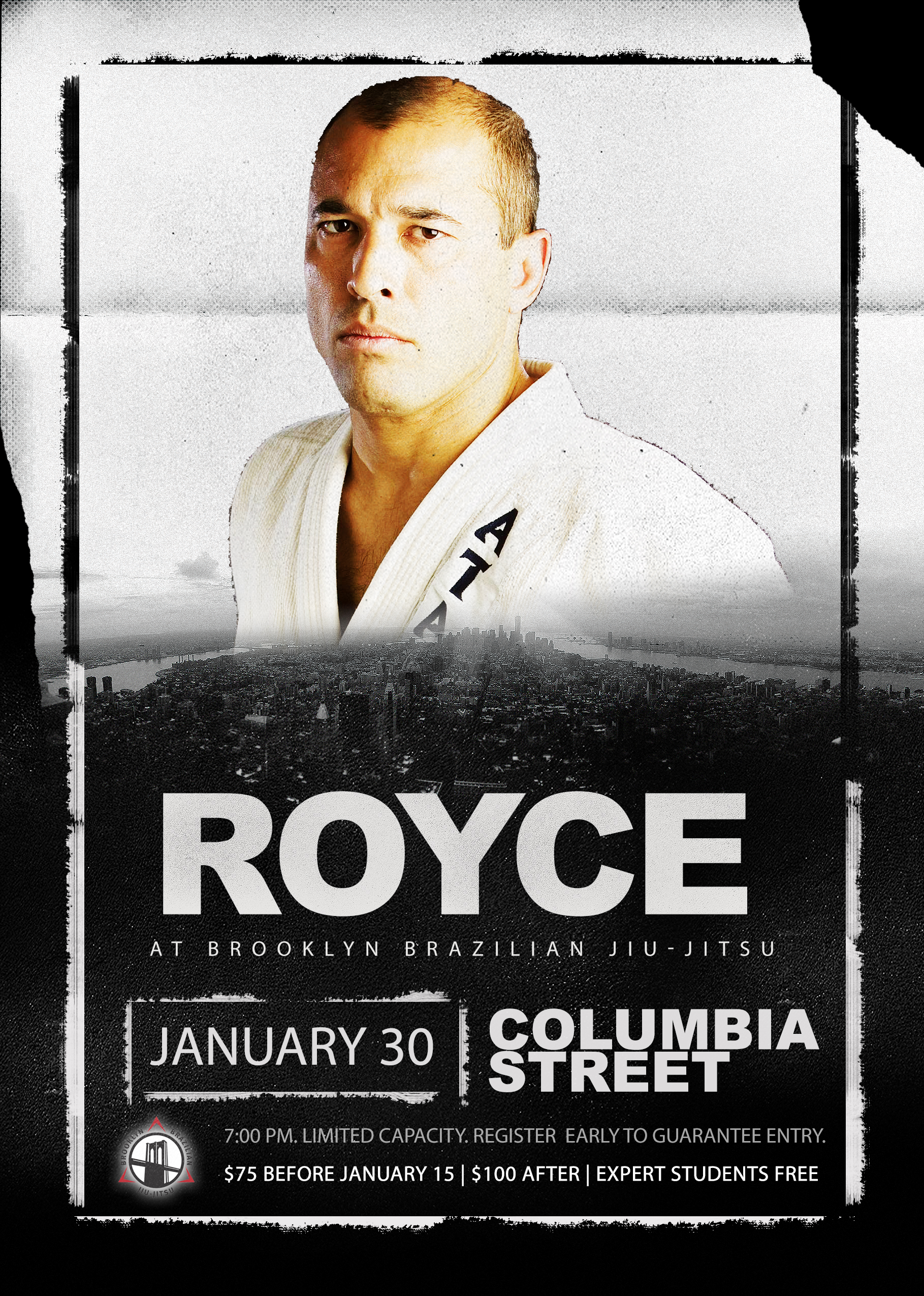“My father told me not to think about winning, but to focus on not losing.”
This kicked off the BBJJ staff “Q&A” with the legendary Royce Gracie back in January.
What happened from there revealed a lot about how that early Jiu-Jitsu mindset could create amazing results that we’ve experienced as practitioners.
After all, that was why we were there. While we live our lives as martial arts instructors, we always show up to these seminars as humble students.
And we were there to learn not just techniques and tactics, but also to gain a deeper insight into the origins of Jiu-Jitsu: the historical, physical, philosophical elements that make up the core of what we do.
So it was fascinating for us to hear him begin with this credo from Grandmaster Helio Gracie.
He continued on: in “winning”, he advises, the focus is to take, to dominate, and as a result this sort of narrow focus can limit the practitioner’s depth of field. It is, he said, somewhat of a finite approach.
Creativity, on the other hand, is what’s needed when it comes to facing a seemingly insurmountable obstacle.
This focus on “not losing” provides a more open space for the individual – a field with no bounding lines and more creative possibilities.
In the training, he went on, we should strive to not worry about beating another person, or even dealing with our own internal, personal challenges. Instead the goal should be to keep our attention on not letting other people – and the challenges they present – overwhelm us.
This message was ultimately a very simple one: to stay focused and aware, true to ourselves, our goals, and to stand unwavering.
As a student, this resonated with me immediately. It’s a link to the philosophy we share as instructors at BBJJ. There’s a powerful mental shift from needing to win, take and dominate, versus just allowing oneself to stay disciplined and not give up or give into temptation.
The success, the so-called “win”, can flow very naturally from an open, disciplined approach, without interruption or distraction.
Also, I understood that these words affect our attitudes very differently.
Having to “win” can produce a very narrow scope on the world. Over time there’s a fear of losing that “winner” status, which comes with an insatiable need to be “on top”. And when we’re faced with a loss or defeat, it’s traumatic.
The win-lose paradigm makes not getting your way pretty hard to recover from.
On the other side, with the attitude of “not losing”, we can still focus on a plan (not losing doesn’t imply a desire to fail, after all) but without some of the baggage. It’s a lighter touch.
Confidence and calmness tends to arise, even when faced with defeat or challenges. The mind doesn’t see it as the end, a terminal defeat, but rather just the next lesson or step on the journey.
For myself and my fellow instructors, that journey is symbolized by “black belt”. For us, the only true way to lose or be defeated is when we give up on ourselves, when we allow frustration or impatience to rattle us and change our course.
So yes, challenges do come up – times get hard. But we learn to navigate problems not by focusing on beating them, but in not letting them beat us. In that conviction not to be bested by the slings and arrows that come at us, we develop a powerful, flexible set of tools to manage ourselves.
I may be mistaken, but I believe this was the core of Royce Gracie’s message to us: the work of Jiu-Jitsu, of all true martial arts, is NOT meant to be easy. It’s also not only about winning, at least as most of us have come to know it. But with a strong belief in not giving up, in approaching our problems creatively and with flexibility, anything is possible, and the world becomes just a little bit more brighter.
Sensei Daniel Declet has been a martial arts practitioner under Shihan Gene Dunn since the age of 6. Now a third degree black belt in Shotokan Karate and a Purple Belt in Brazilian Jiu-Jitsu, his goal is for all students of all ages to find the endless possibilities through consistent martial arts training in their daily lives.





